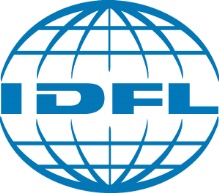In 2024, the European Environment Agency said nearly 600,000 tonnes of textiles were destroyed due to failure to meet regulatory standards. That’s not just lost revenue — it’s a clear reminder of how critical it is to follow textile testing regulations.
Textile testing regulations are your first line of defense against product recalls and financial penalties. These regulations ensure your products are safe and high-quality so that you can safeguard your business and demonstrate a commitment to excellence that customers and partners value.
When you meet international testing standards, you’re proving that your business prioritizes quality and sustainability. That’s a competitive advantage in a market where consumers care deeply about where and how products are made.
Let’s explore the key standards to ensure your products meet the mark.
Key International Testing Standards
Global textile standards are essential for manufacturers aiming to ensure product quality and safety. A leading organization that helps to establish these benchmarks is the The International Organization for Standardization (ISO).
ISO plays a unique role in defining how textiles are tested and certified by offering detailed technical standards for aspects like:
- Colorfastness
- Fabric durability
- Pilling resistance
These standards help manufacturers meet regulatory demands and enhance their competitiveness in global markets.
Steps to Ensure Manufacturing Compliance
Navigating compliance begins with staying informed. Regulations are constantly updated to address emerging concerns such as harmful chemicals or environmental impacts.
Establishing Strong Quality Control Testing Protocols
Manufacturers who invest in testing early can catch potential issues before they escalate.
Testing for chemical safety ensures products meet bans on hazardous substances, while fabric durability assessments measure how materials withstand wear and tear. Colorfastness testing guarantees that dyes won’t bleed or fade prematurely.
Working With Certified Laboratories
Laboratories like IDFL bring decades of expertise to the table, providing accurate testingand auditing services. A trusted lab ensures that products meet stringent standards and helps build credibility with consumers and industry partners.
Compliance doesn’t have to be daunting when you have expert support.
Regional Regulatory Textile Compliance
In Europe, the focus is shifting toward sustainable production. Initiatives like the European Union’s Ecodesign for Sustainable Products Regulation emphasize creating textiles that are:
- Durable
- Repairable
- Recyclable
The Digital Product Passport, a key part of this plan, requires manufacturers to document their products’ environmental impact, promoting transparency and accountability.
In the United States, regulations are more focused on safety and chemical compliance. The Consumer Product Safety Commission enforces strict guidelines, particularly around flammability and harmful substances.
Compliance with these standards is essential for manufacturers wanting to tap into one of the largest consumer markets globally.
Ensuring Success with Textile Testing Regulations
Compliance with textile testing regulations is your pathway to success in a competitive industry. Partnering with IDFL ensures quality, accuracy, and sustainability at every step.
With over 40 years of expertise and global accessibility, IDFL is your trusted partner in manufacturing compliance. Contact us today!

